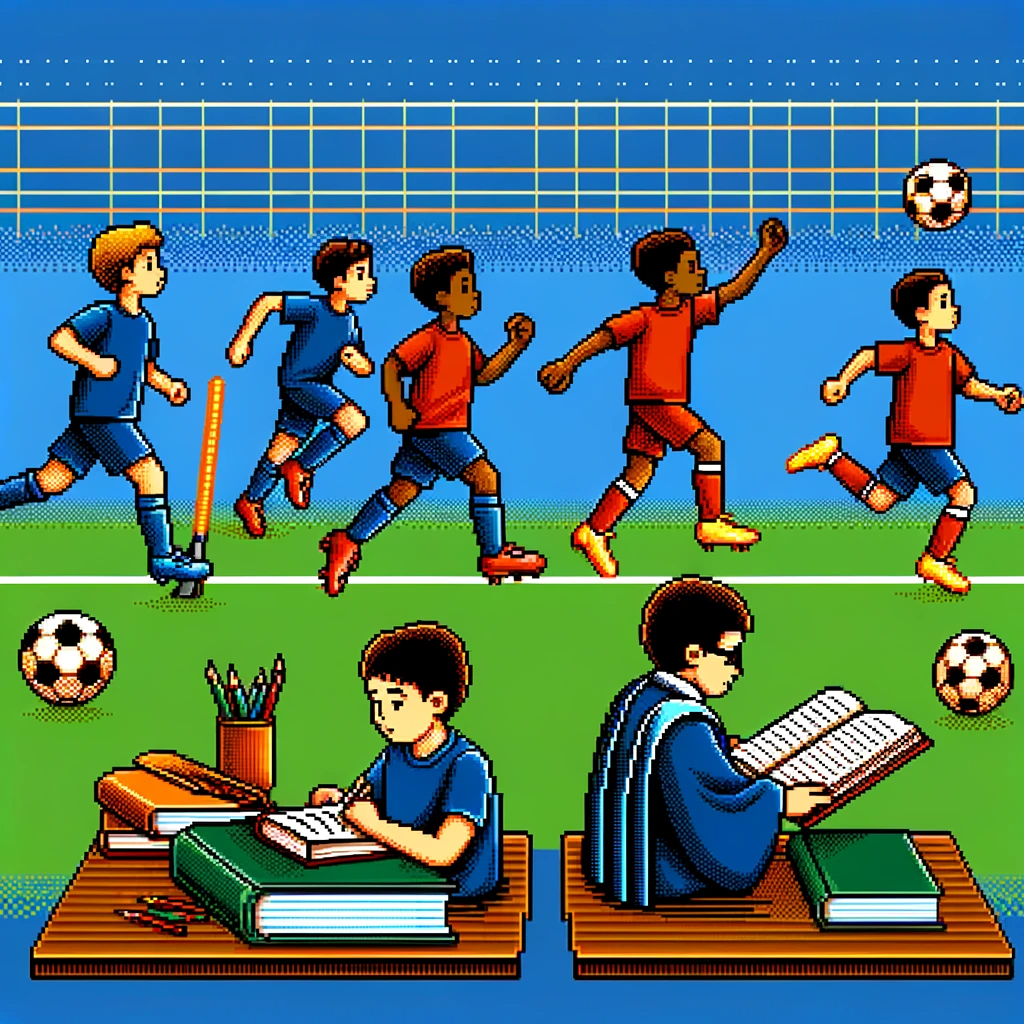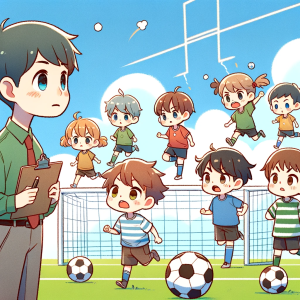
Beyond the Pitch: Transforming Dreams into Reality in Youth Soccer Development
In the quest to understand the driving forces behind the world’s most popular sport, the study titled “We’re sweeping the floors’: life as an EFL Championship Youth Academy Player” provides an invaluable sociological lens into the lives of young athletes striving for professional football stardom. This article serves as a cornerstone for coaches, players, and enthusiasts looking to navigate and influence the future of football effectively. Let’s dive into this article’s heart and unfold its implications for soccer coaching and player development.
The Grit Behind the Glamour
Football, or soccer as known in some regions, extends beyond the 90 minutes of fame on the green turf. The study brings forth the stark realities and daily rigor of players in a Championship youth academy, where dreams and reality converge. The life of an academy player is not just about honing skills but also about adhering to the club’s ethos, embodying professionalism, and balancing education with sport.
Embracing the Beautiful Game: A Sociological Perspective
The research underlines the influence of hegemonic masculinity within club cultures. Coaches and players alike navigate a space dominated by strong, aggressive playing styles and a silent acceptance of hierarchical order. Understanding these subcultures is crucial for coaches who aim to develop skilled players and well-rounded, mentally resilient individuals. By recognizing the pressures and expectations entrenched in the club’s culture, coaches can better support players in managing stress and maintaining a healthy balance between their personal and professional lives.
Mental Health on the Field
The mental wellbeing of young players is a critical area highlighted in the research. With the stringent demands and rigid schedules, young athletes often face significant mental health challenges. The article emphasizes the importance of integrating sports psychologists and chaplains into the academy structure. As a coach or player development expert, prioritizing mental health through holistic support systems can enhance performance and wellbeing.
Dreams Versus Reality: The Path to Professionalism
At the heart of many young athletes is the dream of playing at the highest levels. However, the transition from a promising youth player to a professional is fraught with challenges. The study explores the concept of ‘occupational inevitability’ where players may assume a guaranteed professional career due to early success. This belief often clashes with the harsh reality of professional sports, where only a fraction makes it to the top. Coaches are pivotal in managing these expectations, providing realistic career guidance, and preparing players for various outcomes.
The Role of Education
Neglecting education is a common pitfall among young athletes mesmerized by the allure of professional football. The study stresses the importance of maintaining educational pursuits alongside football training. For player development professionals, encouraging a dual career pathway is vital. It ensures that players have a solid backup plan and a broader skill set, which is beneficial in the long term, irrespective of the trajectory of their football career.
Implications for Coaching and Development
The insights from this study are a call to action for coaches, trainers, and youth development programs:
- Creating Supportive Environments: Understanding the pressures of professional football aspirations, creating an environment that supports mental health and encourages open dialogue about stress and wellbeing is essential.
- Holistic Development: Encourage players to pursue their education and personal interests alongside football. This approach helps in developing more adaptable and resilient individuals.
- Realistic Expectations: Help young athletes set realistic goals and understand the competitive nature of professional sports. This includes preparing them for the possibility of alternative career paths.
- Cultural Sensitivity: Be aware of the club’s cultural dynamics and work towards creating a positive, inclusive environment that challenges toxic norms and encourages healthy team dynamics.
By considering these implications, coaches and player development programs can significantly influence the holistic development of young players, preparing them not just for the potential of a professional football career but for life beyond the pitch.
Conclusion: A Call to Action
The study is a profound exploration of the sociological aspects of football, providing deep insights into the lives of young athletes. For soccer coaching and player development, it is an invaluable resource that highlights the need for a more nuanced, supportive approach to nurturing young talent. As we continue to celebrate and evolve the beautiful game, let’s ensure that our efforts in coaching and development are as strategic and compassionate as the sport itself.
Are you ready to delve deeper into the science and strategy of soccer?
This Week in Soccer offers you a unique blend of expert analysis, engaging infographics, and practical insights. Subscribe to our newsletter and stay ahead of the game with the latest in soccer analytics and coaching strategies. Make the move from spectator to strategist. Subscribe now!



